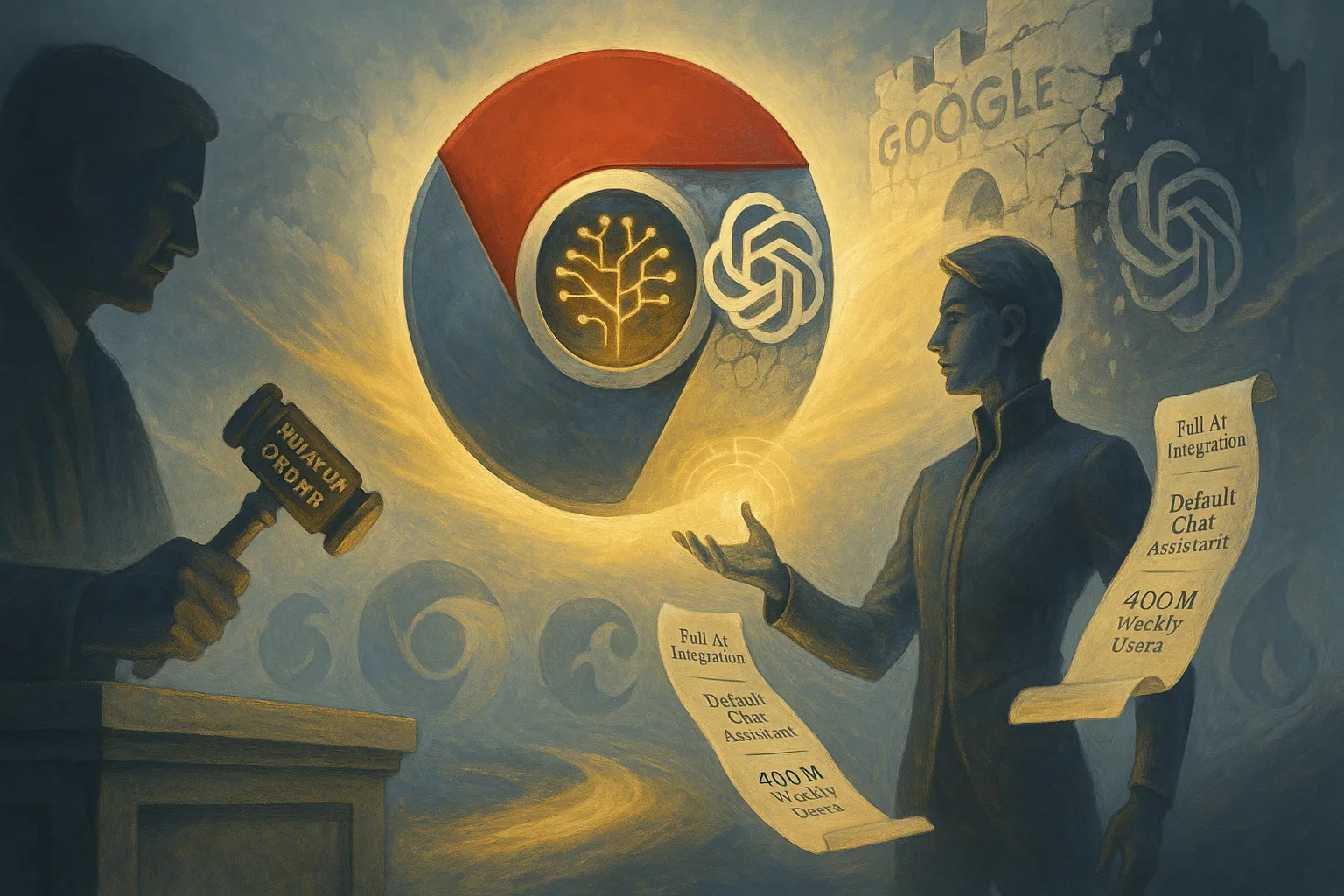Nick Turley, OpenAI's head of product, told the court that owning Chrome would solve one of his company's biggest headaches: getting AI tools directly to users. Chrome commands 64% of the global browser market, dwarfing Apple's Safari at 21%.
The timing isn't random. A judge recently ruled that Google holds an illegal monopoly in online search, and the Department of Justice wants Google to sell Chrome. For OpenAI, this presents a rare opportunity to reshape how people use the internet.
Samsung's recent dealings highlight why OpenAI is so keen on Chrome. The AI company tried to get Samsung to integrate ChatGPT into its phones but couldn't match Google's financial muscle. Google had already paid Samsung to install its competing Gemini AI app instead.
This setback exposed OpenAI's vulnerability. Despite ChatGPT's massive success – now boasting 400 million weekly users – the company struggles to reach people directly. It depends on others' platforms and browsers to deliver its technology.
OpenAI's failed partnership attempts with Google add another layer to this story. The company wanted to use Google's search capabilities to improve ChatGPT but got rejected. Now it uses Microsoft's Bing, which Turley admits has "quality issues."
The company's backup plan – building its own search index – is taking longer than expected. Originally targeting 80% independence from external search providers by 2025, Turley now says it'll take several more years.
But OpenAI isn't just thinking about search. Reports suggest the company is developing a social media platform to compete with X (formerly Twitter). CEO Sam Altman is already gathering feedback on the idea, showing OpenAI's broader ambitions to control how people interact online.
This fits into a larger pattern of tech giants building vertical empires. Google pushes Gemini through Chrome and Android. Apple tightly controls its ecosystem. Even X promotes its own AI tool, Grok. The lines between search, AI, and social platforms are blurring.
The stakes are enormous. If the court forces Google to sell Chrome, it would mark the biggest tech breakup since AT&T in the 1980s. OpenAI's interest shows how AI companies might reshape the internet if given the chance.
For Google, losing Chrome would mean losing direct access to user data and the power to shape how people browse the web. For OpenAI, gaining Chrome would mean controlling its destiny and potentially transforming the browser into an AI-first experience.
The trial is part of a broader government push to rein in Big Tech. Meta, Amazon, and Apple face similar scrutiny. The outcome could reshape how technology companies build and control access to their products.
OpenAI's Chrome ambitions reveal the next battlefield in tech: controlling the gates to the internet. Browsers aren't just windows to the web anymore – they're becoming the interface between humans and AI.
Why this matters:
- The browser wars are back, but this time it's not about rendering web pages – it's about who controls the AI that interprets the world for us. Whoever owns the browser shapes how we interact with information.
- Tech companies are playing 4D chess. While everyone watched the search monopoly trial, OpenAI spotted a chance to solve its distribution problem and potentially leapfrog both Google and Microsoft in one move.










